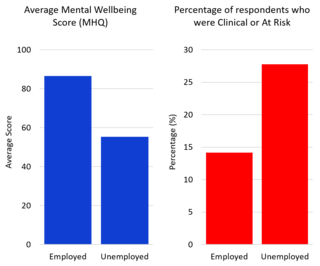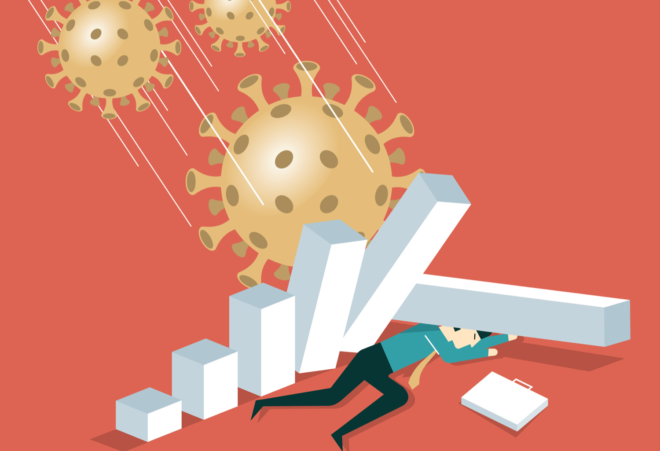Our research suggests that economic trauma may have greater impact on our mental wellbeing than health challenges. What are we individually willing to risk economically to avoid getting and spreading the Coronavirus?
For all of known history, humans have risked their lives for resources and economic means. For centuries people took jobs as sailors, working aboard ships that had a 1 in 4 chance of capsizing and taking their lives with it. Many have made dangerous journeys across borders in search of better economic futures, knowing there was a real chance of not surviving. Still others have gone to war to fight for access to economic resources, risking injury and death. The willingness to risk death for economic opportunity is very real.
The Unemployment-Health Risk Trade-off
Today, as the global economy shuts down to mitigate the coronavirus pandemic, many face the trade-off between risk to life and economics in a different way. For a vast number of people in countries like India that depend on daily wages for their food, loss of employment for more than a couple of weeks could mean starvation. For others a little better off, it could obliterate their ability to educate their children to give them a better life. Relative to much of the world, 21st century America is a wealthy country and the trade-off is not as stark. Most people expect a health system that works for them, and many companies have the ability to hold on to senior executives for months even as revenue falls.
Yet, for many, particularly those in customer-facing positions, lay-offs are coming fast. Half of Americans, especially those in the jobs being cut, live paycheck to paycheck and only 53% have enough to cover three months of expenses if laid off. As more people lose their jobs, the question is what level of prolonged unemployment are we willing to trade-off to mitigate risk to life?
Mental Wellbeing and Unemployment
What does unemployment do to us?

More significantly, our study shows that the mental wellbeing cost of economic trauma, in terms of the proportion of people at risk of a clinical mental health disorder, was far greater than the mental wellbeing cost of death of a close family member or that of a life-threatening or serious health issue. If this is so, these results suggest that our economic success matters fundamentally to our collective state of mental wellbeing.

How will the coronavirus-unemployment trade-off impact our mental wellbeing? And crucially, what are we all individually and collectively willing to bear economically to prevent illness and loss of life? We want to find out.
Take this 2-minute survey and tell us how you see the trade-off between unemployment and health-risk from coronavirus. And please share the survey link – https://sapienlabs.typeform.com/to/zA4W68 – as widely as possible so that we can get as good a picture as possible of what we collectively think. We will post the results in our next blog post.
see related post Coronavirus and the Brain

















It would be interesting to see if there will be more suicides than Covid 19 related deaths as a result of the dracnian crackdowns. If so the entire hysteria would have been unjustifed besides the fact that fewer people will now have some degree of immunity to future infections!
It is of interest that most 0f the senior politicians fall in the advanced age risk group and also the arwreness that AIDS and TB patients may be at such a severe disadvantage that and embarassing number of people may die in a short time.
BJS
Governments need to use data to take decision. They need to think beyond the virus. The scale of damage will be immense, due to loss of jobs and loss of self-morale. Mental health continues to be overlooked!